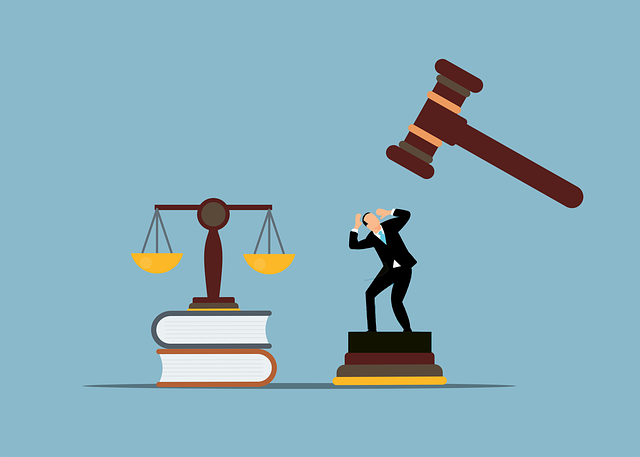Hiring an Attorney for Starting a Business: Expert Advice

Introduction
Starting a business is an exciting venture but comes with many legal considerations. This guide will walk you through the essential legal steps of launching your business, highlighting where and how a business lawyer can provide invaluable assistance.
1. Choosing Your Business Structure

Selecting your business structure is one of the first and most crucial decisions. Options include:
- Sole Proprietorship
- Partnership
- Limited Liability Company (LLC)
- Corporation (S-Corp or C-Corp)
Each structure has different legal and tax implications.
Attorney Sarah Johnson, a specialist in business formation, advises: “Your choice of business entity can significantly impact your liability, tax obligations, and ability to raise capital. It’s a decision that should be made with careful consideration and professional advice.”
Benefits of Limited Liability Company (LLC) Structure
LLCs are popular among small business owners due to:
- Limited personal liability
- Pass-through taxation
- Flexibility in management
However, the best structure depends on your specific circumstances and goals. A business owner must understand the responsibilities and liabilities associated with an LLC, including personal liability and the necessity of legal support to mitigate these risks.
2. Registering Your Business and Obtaining an Employer Identification Number

Once you’ve chosen a structure, you must register your new business. This typically involves:
- Choosing a business name
- Filing formation documents with the state
- Obtaining an Employer Identification Number (EIN) from the IRS
“Proper registration is crucial,” notes corporate law expert Michael Brown. “It establishes your business as a legal entity and is necessary for everything from opening a bank account to hiring employees.”
3. Drafting Essential Legal Documents

Depending on your business structure, you may need various legal documents:
- Operating Agreement (for LLCs)
- Partnership Agreement
- Bylaws (for corporations)
- Shareholder Agreements
A business plan is also crucial as it outlines the business’s needs and goals, helping to navigate financial matters and avoid potential legal issues.
A contract law specialist, Lisa Thompson, emphasizes: “These documents are the foundation of your business relationships. They outline rights, responsibilities, and procedures for handling disputes or changes in the business.”
4. Obtaining Necessary Licenses and Permits

Most businesses require some form of license or permit to operate legally. These may include:
- General Business License
- Professional Licenses
- Health Permits
- Zoning Permits
Requirements vary by industry and location. A law firm can help navigate these requirements efficiently.
5. Protecting Intellectual Property

If your business involves unique products, services, or branding, consider protecting your intellectual property through:
- Trademarks
- Copyrights
- Patents
“Intellectual property can be one of your most valuable assets,” says IP attorney John Davis. “Protecting it early can prevent costly disputes down the road.” Potential legal issues can arise from not protecting intellectual property, making it crucial to consult a business lawyer to navigate these complexities.
6. Complying with Employment Laws

As you hire employees, you’ll need to comply with various employment laws:
- Fair Labor Standards Act (FLSA)
- Equal Employment Opportunity (EEO) regulations
- State-specific employment laws
An employment law professor, Dr. Emily Chen, advises: “Employment law compliance is complex and ever-changing. Many small businesses benefit from reliable legal advice in this area.”
7. Creating Essential Business Contracts

Well-drafted contracts are crucial for protecting your business interests. Common contracts include:
- Service Agreements
- Sales Contracts
- Non-Disclosure Agreements (NDAs)
- Employee Contracts
“Clear, comprehensive contracts can prevent misunderstandings and provide a roadmap for resolving disputes,” notes Robert Wilson, a small business lawyer.
8. Understanding Tax Obligations

Your business structure and activities will determine your tax obligations. Key considerations include:
- Federal income tax
- State and local taxes
- Sales tax
- Payroll taxes
The choice of business structure can also impact personal assets and liability, as a poorly chosen entity could expose your personal wealth to risk in the event of legal issues or debts.
Consult with both a tax professional and a business attorney to ensure full compliance and optimize your tax strategy.
9. Implementing Privacy and Data Protection Measures
In today’s digital age, businesses must be mindful of privacy laws and data protection:
- Develop a privacy policy
- Implement data security measures
- Comply with regulations like GDPR or CCPA if applicable
“Data privacy is no longer just a concern for tech companies,” warns Maria Rodriguez, a cybersecurity law expert. “Every business that collects customer data needs to take this seriously.”
10. Planning for Dispute Resolution
While no one starts a business expecting legal troubles, it’s wise to plan for potential disputes:
- Include arbitration clauses in contracts
- Consider mediation as a first step in resolving conflicts
- Understand your litigation options
The Role of a Business Attorney in Starting Your Business
A skilled small business attorney can provide invaluable assistance throughout the startup process:
- Advising on business structure selection
- Drafting and reviewing legal documents
- Ensuring regulatory compliance
- Protecting intellectual property
- Negotiating and drafting contracts
- Providing ongoing legal counsel as your business grows
David Lee, a startup founder, shares: “Hiring a business attorney was one of the best decisions I made. Their guidance helped me avoid pitfalls I didn’t even know existed and gave me confidence in my business foundation.”
When to Hire a Business Attorney
While some legal tasks can be handled independently, certain situations almost always warrant professional legal help:
- Choosing and setting up a business structure
- Negotiating complex contracts
- Seeking investment or financing
- Facing potential litigation
- Expanding into new markets or product lines
It’s also important to seek referrals from fellow business owners when looking for a business attorney. Personal connections or interactions in online forums can lead to valuable recommendations, which may even include perks like free consultations or discounts.
Costs of Legal Services for New Businesses
Legal fees can vary widely based on location, complexity, and the attorney’s experience. Many lawyers offer:
- Flat fees for standard services
- Hourly rates for more complex work
- Package deals for startups
Some attorneys also offer deferred billing or equity arrangements for promising startups.
DIY Legal Work vs. Professional Assistance
While online resources and templates are available for many legal tasks, they come with risks:
- May not be tailored to your specific needs
- Could miss state-specific requirements
- May not hold up in court if challenged
“DIY legal work can seem cost-effective initially,” cautions Sarah Johnson, “but mistakes can be extremely costly to fix later. It’s often more economical in the long run to get professional help from the start.”
Conclusion: Laying a Strong Legal Foundation for Your Business
Starting a business involves navigating a complex legal landscape. While it may seem daunting, properly addressing legal considerations can save you significant time, money, and stress in the long run.
Remember:
- Choose your business structure carefully
- Ensure all necessary registrations and licenses are in order
- Protect your intellectual property
- Comply with all relevant laws and regulations
- Seek professional legal advice when needed
By laying a solid legal foundation, you’re not just protecting your business but setting it up for long-term success and growth.
Related Terms: Business entities, llc operating agreements, business agreements, business strategies













